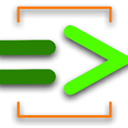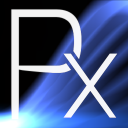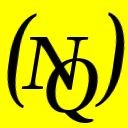Unveiling the Best Pyo Alternatives for Audio DSP and Music Creation
Pyo, a Python module written in C, offers a powerful environment for creating DSP scripts, manipulating audio signals in real-time, and integrating sophisticated signal processing chains directly into Python projects. Its ability to handle mathematical operations, basic signal processing, and complex algorithms like sound granulation, coupled with support for OSC and MIDI protocols, makes it a robust tool for audio development. However, depending on specific project needs, workflow preferences, or platform requirements, users may seek a Pyo alternative that offers different paradigms, features, or community support.
Top Pyo Alternatives
Whether you're looking for a visual programming environment, a more specialized language for music, or open-source flexibility, these alternatives provide diverse approaches to audio synthesis, processing, and composition, making them excellent choices for those exploring beyond Pyo.

Pure Data
Pd (aka Pure Data) is a real-time graphical programming environment for audio, video, and graphical processing, making it a compelling Pyo alternative for those who prefer visual patching over text-based coding. It's free and open-source, available across Mac, Windows, and Linux, and offers API features, providing a flexible platform for creative sound design.

SuperCollider
SuperCollider is a powerful Pyo alternative, combining a real-time audio synthesis engine with an object-oriented programming language specifically designed for music. Free and open-source, it runs on Mac, Windows, Linux, and BSD, and excels in real-time processing, offering deep control over sound for experimental and compositional work.

ORCA
ORCA is an Esoteric Programming Language and live-coding environment perfect for musical experimentation, making it a unique Pyo alternative. It operates on a modular system where each letter of the alphabet is an operation. Free and open-source, ORCA provides real-time processing across Mac, Windows, and Linux, appealing to those seeking a distinct approach to music creation.

ChucK
ChucK stands out as a strong Pyo alternative, being a programming language built specifically for real-time sound synthesis and music creation. It features a unique time-based, concurrent programming model for precise audio control. As a free and open-source tool, ChucK offers real-time capabilities on Mac, Windows, and Linux.

Csound
Csound is a comprehensive sound design, music synthesis, and signal processing system, making it a robust Pyo alternative for serious audio work. This free and open-source platform, available on Mac, Windows, and Linux, is renowned for its music composer features, offering vast possibilities for sound creation and manipulation.

Max/MSP
Max/MSP is an interactive visual programming environment for music, audio, and media, serving as a powerful commercial Pyo alternative. Available on Mac and Windows, it excels in real-time processing and visual programming, providing an intuitive yet deep platform for artists, composers, and researchers alike.

PraxisLIVE
PraxisLIVE is an open-source, visual programming environment that functions as an excellent Pyo alternative, particularly for those interested in multimedia and live coding. It combines a visual patching system with powerful Java programming. Available for free on Mac, Windows, and Linux, it boasts modular system and real-time processing features.

Nyquist
Nyquist is a language and IDE for sound synthesis and music composition, making it a valuable Pyo alternative for text-based synthesis. Implemented in C and C++, this free and open-source platform runs on Win32, OSX, and Linux. It features live coding and real-time processing, combining a powerful functional language with extensive sound capabilities.
Each of these Pyo alternatives offers unique strengths in real-time audio synthesis, signal processing, and music creation. We encourage you to explore their capabilities, considering your specific project requirements, preferred programming paradigms (visual vs. text-based), and desired features to find the best fit for your audio DSP endeavors.